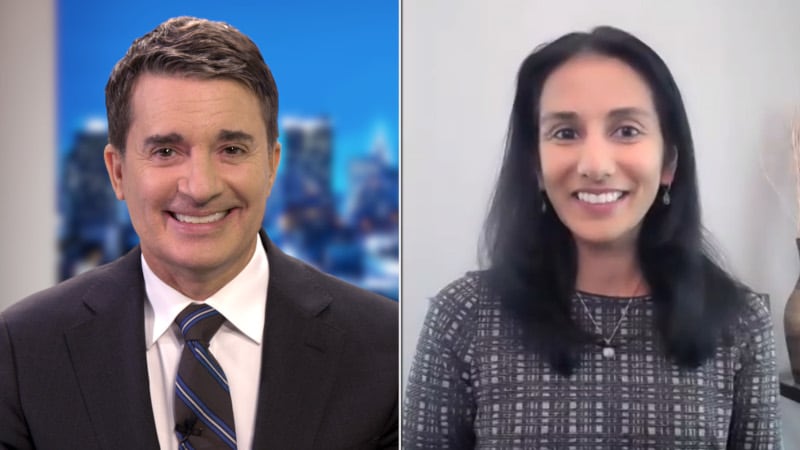What, Why, How, and Should You Have One?

This transcript has been edited for clarity.
John Whyte, MD, MPH: It takes a long time to become a doctor, 20 plus years of education, working 80 hours a week. A recent report by Medscape showed that many of us are doing side gigs — not only medical consulting, but real estate, photography, breeding animals. What’s going on here?
To provide some insights, I’ve asked Dr Nisha Mehta. She’s a radiologist who runs two online communities about side gigs. Dr Mehta, thanks for joining me.
Nisha Mehta, MD: Thanks for having me. I’m excited to be here.
Whyte: I have to ask you about this concept of side gigs, because I don’t remember it in my training in medicine. How common are side gigs?
Mehta: Surprisingly and increasingly more common. It’s interesting because it is definitely not something that people think of when they think of doctors. People think of these very busy people who’ve got these 60- to 80-hour workweeks. Who has time for a side gig?
I think that as different things happen within the healthcare landscape, whether that be challenges in the existing healthcare landscape or changing demographics in medicine, people are trying to find different ways to create flexibility in their lives. Therefore, this trend towards having a side hustle or being able to create some different income streams has become something that has become really popular.
Whyte: I wanted to ask you about that, because the Medscape report talked about why physicians do this. I would have thought our colleagues are doing it because they have hobbies or they want a diversion. There is a percentage of that, but the majority of physicians do it for extra income.
When you think about it, physicians are, in general, highly compensated compared with the general population. What does that say about the state of our profession that physicians are doing it — I like how you call it these “side hustles” — to earn some extra cash.
Mehta: I do think it’s an interesting phenomenon, and I think there are many layers to why people do what they do and how they’re doing it. I don’t think that anybody would contend that physicians aren’t paid well enough to live off of their incomes. I don’t think that is the story. I think there are more reasons why people decide that they might want some alternative revenue streams to be able to hedge their physician income a little bit.
I think many of us learned in the course of the pandemic that our physician incomes aren’t as stable as we thought. Those of us who were partners in practices saw our income go down as we had to cover overhead and we weren’t bringing in as much money. We had physicians who were being laid off, furloughed, and all of those things. I think people got a little bit scared about the idea of putting all your eggs in one basket when it comes to income.
In my own family, my husband is in an eat-what-you-kill model and I am in a per diem model. Our income clinically went down a large amount during the early stages of the pandemic. It was really nice for us to know that we had all these other side income streams that were coming in that covered all of our expenses. I think that people have seen the need for that diversification.
As the healthcare landscape changes, people are increasingly scared about the stability of their jobs or what changes could come in terms of whether there is a reimbursement cut to a particular code that could significantly affect income, or as consolidation happens and people are looking to cut costs across systems and people are looking at different ways for relative value unit (RVU)–based models. All of these new factors have come in that traditionally have not been at the forefront of people’s minds in terms of their salaries and have shown that maybe your income isn’t as stable as you think. Yes, it’s enough, but people want those backup plans.
I think that people are going into it not necessarily because they don’t have enough money; it’s that backup plan and that alternative income stream. The other thing I think is that today’s graduates are saddled with so much more student debt than previous generations of physicians. When they graduate and they’ve got student loans at interest rates of 6%-9% and they’re looking at student loan payments that are the same as their mortgage payments, they’re starting to say, “Hey, if I had a little bit of extra income earlier in my stage of practice, then I might be able to get those loans out of the way earlier and have a little bit more in the way of freedom.” I think it’s more about freedom than it is about money. Money gives freedom, so people often equate the two.
Whyte: I don’t want to discount the impact of addressing burnout. We’ve been talking about burnout for quite some time. It’s a problem in the health profession, and it’s a problem in other professions as well. How do side gigs help physicians manage the burnout they may be experiencing from their practice?
Mehta: I think that’s a really great question. It’s multifaceted. I think one of the things that comes up often is the idea of being able to use a different part of your brain and get away from some of the monotony that you may feel once you hit that 5- or 6-year itch where you’ve been doing the same thing for a while.
There’s part of that, but I also think it’s this idea that you can contribute to patient care on a more global level if you’re doing a side gig where you’re writing or you’re speaking and you’re able to address a bigger audience. One of those tenets of burnouts is really this question of, “Is what I’m doing making an impact?” The idea of being able to impact on a larger scale is very exciting to many people.
I think the other thing that factors into that conversation is also, “Am I finding something that I’m doing every day that brings me joy, that gives me a little bit of a respite from some of the things that are frustrating me? Am I able to connect with people who I don’t get to connect with on a daily basis?” One of the biggest parts of burnout is this loss of sense of connection.
We don’t have as much time with our patients. We don’t have as much time with our colleagues. Is there a way to be able to connect with other people on a more meaningful level? Does the side gig provide that opportunity? Finding meaning, doing something that you enjoy, and connecting with other people are really great in terms of burnout.
To come back to your original point about the finances, let’s say you are burning out and you want to be able to cut back one shift or cut back to part time or opt out of call and you need to be able to make up that income somehow. If you’re able to have these other things that can make up for that income, that creates some flexibility in your life, I think that can go a long way toward creating career longevity.
I’m thinking about how do you do this for the next 10, 20, or 30 years? What are the things that you need to do now to prevent yourself from burning out? Maybe that is slowing down a little bit on the front end so that you can be around for much longer.
Whyte: Some of our colleagues may be thinking, “Hey, that all sounds pretty good. I could earn some extra money. I could address issues of burnout. How do I get started?” How does one find a side hustle?
Mehta: This is the perpetual question. We probably get it about 15 times a day on our forum. Everybody’s side hustle is going to be different. It’s going to depend a lot on what your goals are. The hardest part, I think, is just figuring out what is it that you want to do. After that, there’s a pretty good pathway that can be laid out for each of those things.
Number one, you need to ask yourself, how much money do I really want this to make? Is this more for fun? Am I doing this because I want to be able to get my word out, to have a platform, and have a voice? Is it because I’m trying to make money? Maybe I want to create a medical device because I’ve got this great idea. What is the purpose of this side gig?
Trying to figure out that purpose is probably first and foremost what you have to do. From there, it’s trying to find other people who have done those things and find out how you emulate those things. For me, part of starting this group was because I had all these things that I wanted to do, but I didn’t know how to do them because I didn’t know other physicians that were doing things outside of medicine.
You can talk to other people who are doing similar things to you outside of medicine, but their needs and their constraints were a little bit different from mine in terms of I was already working 60 hours a week. I needed to talk to people who were balancing both of those things. Finding your tribe and trying to find people who are doing things that make it fun is really important.
If you really want to be able to do more consulting, who do you need to connect with so that you can do more of those things? If you want to go into real estate, what do you need to learn? What are your basic foundational skills that you need to be able to understand those spaces?
For some people, it’s, “How am I making connections?” For other people, it’s, “What skill set do I need to acquire that I don’t have from my life as a physician?” For other people, it’s, “I know this is a hobby that I’ve always liked; how do I find a way to monetize it?”
Whyte: Tell us about your online communities where physicians can learn more information.
Mehta: We’ve got two online communities. One is called Physician Side Gigs, which I guess is more pertinent to those watching here. That one has about 80,000 physicians on it. It’s at www.facebook.com/groups/physiciansidegigs. You can also go to www.physiciansidegigs.com, and there’s a link on that website to get to the Facebook group to join.
We also have a linked community called Physician Community, at www.facebook.com/groups/physiciancommunity. That’s got about 50,000 members, and it’s really for discussing all things life and medicine. Physician Side Gigs is really aimed at empowering physicians with the tools that they need that they didn’t have during med school. Whether it’s business skills, finance skills, or side gig ideas, that’s where all that all happens.
Whyte: You have some side gigs. We can find you on your website as well as on social.
Mehta: Absolutely. I personally love doing advocacy, so I am writing, speaking, and trying to change the culture of medicine. You can find me at my self-titled site, www.nishamehtamd.com. There’s information about my personal work there.
Whyte: Dr Mehta, I want to thank you for taking the time today to share your insights and help people think, “Maybe it’s time for a side gig.”
Mehta: Thank you for having me. I’m really pleased to be here.
Follow Medscape on Facebook, Twitter, Instagram, and YouTube
>>> ad: Check Out TODAY'S BEST Amazon Deals! <<<<
Originally Appeared Here



